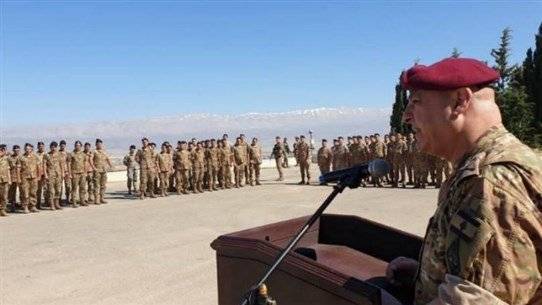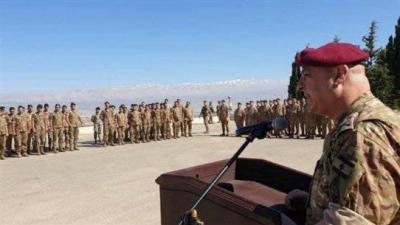The picture of the presidential entitlement remains unclear, as does the scenario of the second election session called by Speaker Nabih Berri for Thursday, October 13. This uncertainty surrounds the potential boycott by parliamentary blocs, as well as the participation of Hezbollah and its allied blocs in that session with a single candidate instead of a strategy of blank ballots, or the possibility of the opposition electing a single candidate, MP Michel Moawad, or the continued stubbornness of the "Change" deputies and some Sunni deputies. It appears that most political parties have accepted that the vacuum is inevitable and that the presidential issue has not matured yet.
Therefore, several hypotheses are raised for the period following the expiration of the constitutional deadline for electing a president on October 31, including that the presidential vacuum could increase the chances of Army Commander General Joseph Aoun reaching the presidential seat through an external-internal settlement that produces this solution. Consequently, interpretations and legal arguments began to emerge regarding this point, suggesting that it may become possible for the Parliament to elect the Army Commander without amending the constitution, specifically Article 49, which states that "judges and employees of the first category, and those equivalent in all public administrations, public institutions, and other legal entities in public law, cannot be elected during their tenure and during the two years following their resignation or actual cessation of work or their retirement."
This interpretation implies that the vacancy of the presidential position nullifies the deadlines, thus allowing for the election of the officials specified in this constitutional article even if they have not resigned from their positions during the two years preceding the election date. Proponents of this theory refer to the precedent set by former minister and MP Bahij Tabara regarding this article to Speaker Berri, after the presidency vacancy following the end of President Emile Lahoud's term. Berri adopted this legal reasoning during the presidential election of Michel Sleiman, without amending the constitution, despite Sleiman not resigning from the military two years prior.
However, several legal experts oppose this interpretation, arguing that the constitution is clear in Article 49, stating that first-category employees cannot run until a certain period has elapsed after leaving their position. Thus, this opposition is principled and extends beyond the constitutional deadline. Its premise is that a first-category employee might have benefited from their position to reach the presidency; how can it be considered that they benefit during the two-month deadline and then are considered non-benefited thereafter? Moreover, those advocating for the possibility of electing the Army Commander after the constitutional deadline without amending the constitution draw on precedents set during the elections of Lahoud and Sleiman. They argue that if a president is elected and no challenge is made within 24 hours of his tenure, the election is established, and the violation becomes unchallengeable.
Therefore, it is unlikely that there will be a constitutional amendment to elect the Army Commander if an agreement is reached on his presidential candidacy, especially since amending any part of the constitution is still considered a "taboo" in Lebanon, as it opens the door wide to amendments that could affect powers and lead to disputes that may only end with an overhaul of the "Taif Agreement," in addition to the current composition of the Parliament not permitting such changes.
In light of this, some have begun to promote the idea that the Army Commander could announce his candidacy after the end of President Michel Aoun's term on October 31, allowing him to market himself both domestically and internationally. However, sources indicate that this is unlikely, and General Joseph Aoun cannot declare his candidacy for the presidency at any stage or time. While the time for serious discussions regarding his candidacy has not yet arrived, General Aoun considers himself uninvolved in the presidential matter, focusing instead on the army's situation and the major challenge facing the military institution, which is social security. Meanwhile, officials are preoccupied with improving their positions and interests, leaving the military to face alone the responsibility of providing security and stability, despite military personnel suffering like all citizens from the economic-living crisis.




